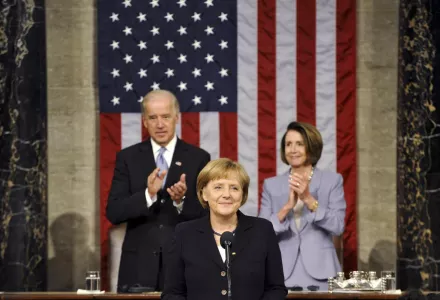100 Days of Biden: A Transatlantic Balance?
Please join the Future of Diplomacy Project's Fisher Family Fellow, Ambassador Peter Wittig, for a virtual study group that will explore how and to what extent the first 100 days of the Biden presidency has reset the transatlantic partnership.
In Europe, the Biden victory was mostly greeted with tremendous relief. Notable exceptions were the governments of Poland, Hungary and Slovenia as well as right-wing populist parties in many European parliaments. Biden is widely viewed as an old-school transatlanticist, a strong backer of NATO, and a supporter of the EU as a strategic partner for the US. His critical view on Brexit is also widely known.
How much restoration of the old Western order is possible and desirable? What will be the main areas of collaboration and tension in the European-U.S. relationship in the foreseeable future?
Ambassador Peter Wittig is a five-time Ambassador. He served in Spain, at the UN, in Lebanon and Cyprus before working in the cabinet of two Foreign Secretaries at headquarters. Most recently he was the German Ambassador at the United Nations in New York (2009 - 2014) representing his country in the Security Council, in Washington (2014 - 2018) and in the United Kingdom (2018 - 2020).
Please register here. A light reading list will be provided and students are expected to come on time and prepared.

